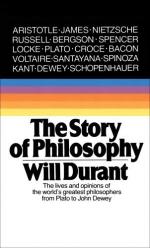
|
| Name: _________________________ | Period: ___________________ |
This quiz consists of 5 multiple choice and 5 short answer questions through Contemporary European Philosophers.
Multiple Choice Questions
1. What does Kant set out to prove is innate and does not come from experience?
(a) religious sense
(b) moral sense
(c) directional sense
(d) common sense
2. What does Socrates ask Cephalus to define?
(a) the blessing he receives from education
(b) the meaning of the word moral
(c) the best form of government
(d) the greatest blessing he receives from wealth
3. What does Bergson uphold that is distinct from the organism, but is limited by its characteristics?
(a) eyesight
(b) consciousness
(c) hearing
(d) pain
4. What does Aristotle teach at the Lyceum?
(a) the socratic Method
(b) physical and mental training
(c) athletics and mathematics
(d) biology and natural sciences
5. Why does Russell visit Russia?
(a) for a first-hand view of a socialist society
(b) to talk with the common people
(c) for his health
(d) to discuss politics
Short Answer Questions
1. What causes Bergson to become a famous popular philosopher?
2. What motivates Voltaire to accept Prince Frederick's invitation and travel expenses to join him in his court in Potsdam?
3. Where does the Jewish migration along the Danube and Rhine rivers take the Jews?
4. What philosopher and statesman does Francis Bacon aspire to be like?
5. How does every society and government ruins itself?
|
This section contains 257 words (approx. 1 page at 300 words per page) |

|




